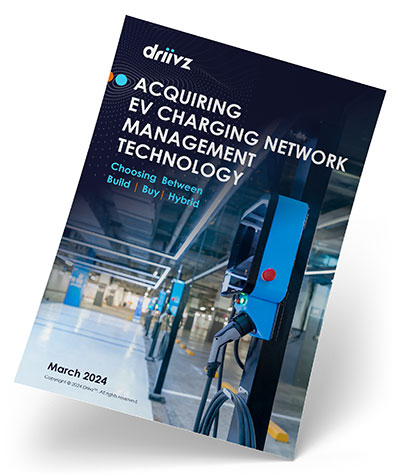Fueling an internal combustion engine-based vehicle generates a completely different customer journey than charging an electric vehicle. Almost every intersection has one or two gas/petrol stations, so drivers generally make their choice on price – unless they have a strong relationship with a specific vendor due to their membership in the loyalty club/credit card holder.
The Electric vehicle charging market has yet to reach that level of competition, but eMobility service providers can head it off by building customer loyalty and brand strength with clear communication of their value proposition, clear pricing models, and flexible payment options.
Varied Pricing Models Enhance EV Driver Choice
Unlike pricing per liter or gallon of gasoline/petrol, pricing for EV charging is more complex. EV charging fees can vary by KWh, per-minute, and charge speed – ultrafast, fast, etc. The fees can vary by time of day, with higher rates charged during peak hours. These time-of-use pricing models consider all facets of charging to determine the specific tariff – consumer satisfaction, the load variance of the power grid, etc.
EV Charging can be offered at a variety of discounted rates; for example, a charge point at a shopping mall may offer a special discount or the first hour of charging is free. Subscribers of an eMobility provider may get specific tariffs that “one-time” drivers don’t.
Some auto manufacturers, such as Nissan, have inked agreements with eMobility providers like EVgo to provide free charging to consumers to a certain dollar amount. Specific audiences, such as fleet corporate accounts, may be offered special pricing models due to the volume of vehicles being charged on the road.

Pricing typically also considers ancillary fees – such as staying connected after charge is complete, connection fees, reservation fees, premium charging priority, etc. Some eMobility providers may even charge a premium for out-of-network charging (roaming).
EV charging service providers in multi-dwelling residential sites can offer a full range of pricing options as well – included as a surcharge in monthly community fees, payment on an individual-charge basis, and/or resident v. nonresident charging fees.
Charging sites on corporate campuses may take a similar approach – employees may pay one rate, visitors another. EV charging can even be an employee perk, with the power costs absorbed by the employer.
Municipalities may offer resident and non-resident pricing, prepaid discounts, or even free charging to encourage EV adoption.
Streamline EV Charging Billing Operations
Electric vehicle service providers are focused on revenue growth while delivering on the promise of business flexibility in a world of disruption and change. Maximizing the customer experience requires an easy ability to define various EV charging pricing plans and payment methods – enabled by comprehensive billing process automation to optimize monetization and improve ROI.
The EV charging session is usually initiated via the eMobility service provider’s app, an individual RFID card, or the card directly. Then, the drivers are charged for their charging session via credit cards, debit cards, prepaid, or postpaid.
No matter the payment method, eMobility providers need to have a billing and invoicing system able to handle flexible payments types and tariff plans – prepaid, postpaid, ad hoc, group plans, etc.
In addition, the data which is generated by the chargers is not always accurate and clean. Corrupted transactions need to be handled automatically to prevent them from entering the billing cycle. This precludes scenarios of drivers’ disputes and frustration.
The goal, of course, is to have a robust and flexible EV charging billing management system that supports a variety of business and pricing models to contribute to a seamless consumer EV charging experience, more efficient operations and optimized monetization for electric vehicle service providers.





